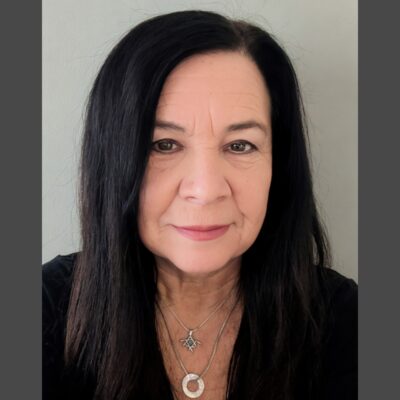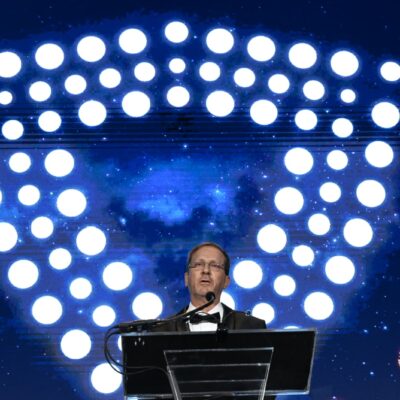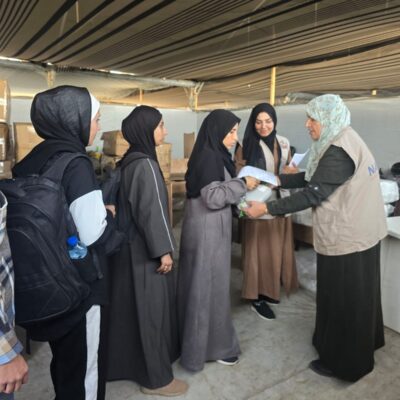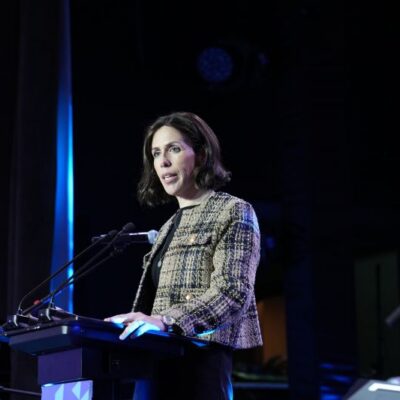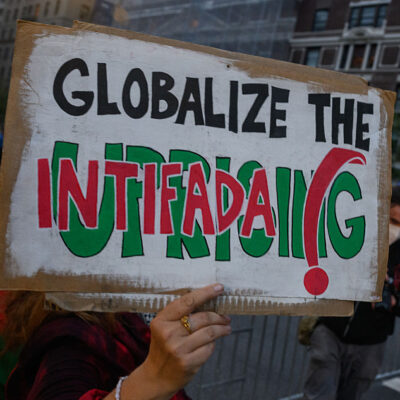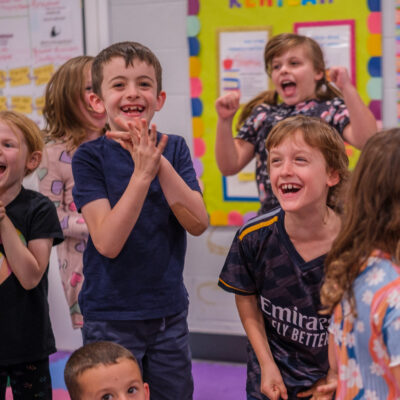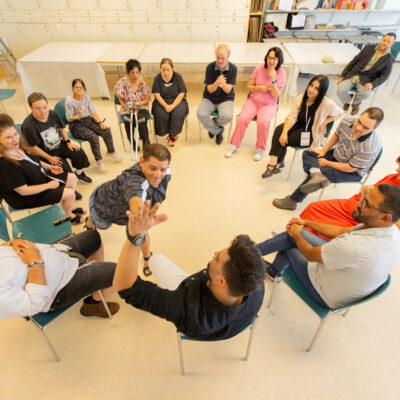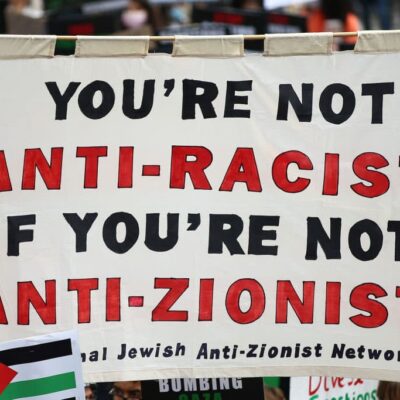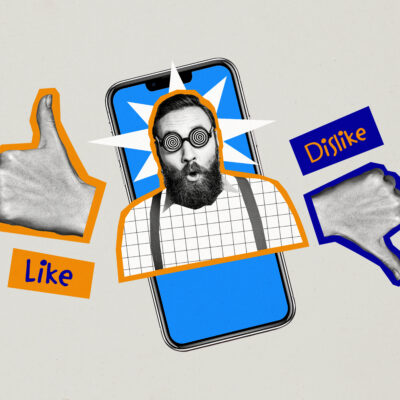Never again
Elie Wiesel Foundation announces first round of grants, aimed to help Uyghur crisis
Elisha Wiesel, son of Holocaust survivor and Nobel Peace Prize laureate Elie Wiesel, who heads foundation in his father’s name, explains why he’s devoted himself to genocides half a world away from Auschwitz

Wiktor Szymanowicz/Future Publishing via Getty Images
Protesters demonstrate in front of the Chinese Embassy in support of the repressed Uyghur Muslim community who live in Xinjiang in northwest China on July 1, 2021.
How can Americans urge political leaders to do more to oppose the Chinese government’s genocide of ethnic Uyghurs?
That’s been among the central concerns of the Elie Wiesel Foundation for Humanity since it launched a grant-making program in October 2022.
On Monday, the foundation, which was founded in 1986, announced the first beneficiaries of its inaugural grant-making cycle, selected based on their commitment to advocating for the Uyghur community. The grantees in Uyghur advocacy include World Uyghur Congress, Uyghur Human Rights Project, World Jewish Watch ($250,000) and Ana Care & Education ($50,000).
The grant advisory committee included Mark Hetfield, president and CEO of HIAS; Nadine Epstein, editor-in-chief and CEO of Moment magazine; Gulhumar Haitiwaji, activist and daughter of camp survivor Gulbahar Haitiwaj; and Natan Sharansky, Soviet dissident, Israeli politician and human rights activist.
Sharansky explained why Uyghur advocacy is an appropriate choice for the inaugural grants of the Elie Wiesel Foundation.
“[The] Chinese regime de facto keeps the Uyghur people in concentration camps, treating them in the most inhuman way,” Sharanksy said in a statement. “It’s probably the most massive violation of human rights in our time, while the Free World’s response is disproportionately weak to the scope of this crime.”
The U.S. State Department estimates more than 1 million civilians have been arbitrarily imprisoned in the Xinjiang province since at least 2017 while China is committing crimes against humanity against Muslim Uyghurs in an effort to create a single-ethnic state. The State Department describes the crimes as arbitrary imprisonment and torture, forced sterilization, forced labor and restrictions on freedom of religion and expression.

Elisha Wiesel, the chairman of the foundation and son of Holocaust survivor and Nobel Peace Prize laureate Elie Wiesel, the foundation’s namesake, spoke to eJewishPhilanthropy over email about why he’s devoted himself to crises half a world away from Auschwitz.
This interview has been lightly edited for clarity.
Haley Cohen: What was the rationale for selecting groups working on behalf of the Uyghurs?
Elisha Wiesel: The attempts by the Chinese Communist Party to erase Uyghur culture represent the largest genocide occurring on the planet today. More than a million Uyghurs are being detained for their ethnicity and faith. Reports of torture have made their way to the West through survivors who have made it out. It is hard to listen to the stories of these survivors without feeling highly motivated to act and amplify their story. Against seemingly impossible odds, my father faced the biggest bully on the planet during the Cold War — the Soviet Union — and over a 25-year period helped build the Soviet Jewry movement. I believe we honor his memory by challenging the Chinese Communist Party to end their mistreatment of the Uyghurs.
HC: With so much geopolitical tension between the U.S. and China, what leverage does the U.S. really have on this issue?
EW: Confronting the Chinese Communist Party on their mistreatment of Uyghurs is, thankfully, a bipartisan issue, enabling rare political agreement that can actually drive change. The Chinese economy is not without its difficulties and relies heavily on the U.S. consumer. Consumers are more socially conscious than ever, and there is an opportunity for major American brands to publicly declare that their supply chains are free of Uyghur forced labor.
HC: China has recently begun to focus on the Middle East and is establishing ties with Saudi Arabia and other Gulf nations. What are those nations doing to support their Muslim brethren?
EW: Sadly, the Arab League’s recent visit to China was accompanied by a press release which said, “Members of the delegation said that Xinjiang’s society is harmonious, the economy is prosperous and Muslims freely exercise their ethnic and religious rights in accordance with the law.”
HC: Is there any evidence that pressure on China by outside groups has been effective in improving their human rights practices?
EW: We can only hope that people in China will hear the messages that their government has gone too far and will one day use their influence for better treatment of the Uyghurs. As my father said in his 1986 Nobel acceptance speech, [referring to victims of human rights abuses everywhere,] “What all these victims need above all is to know that they are not alone.”
HC: What are your thoughts about the criticism in some quarters of the Jewish community for “universalizing” the lessons of the Holocaust — in other words, using those lessons to shed light on a situation like the Uyghurs?
EW: My father believed that surviving the Holocaust left him with a mission not only to testify about the genocide that occurred to the Jewish people but also to do what he could to prevent future genocides. We are capable of being morally activated in the present without trivializing or minimizing the past. The detainment and mistreatment of a peaceful population, which poses no threat to China, rightly deserves the international attention, which the Uyghur community are asking for.

 Add EJP on Google
Add EJP on Google